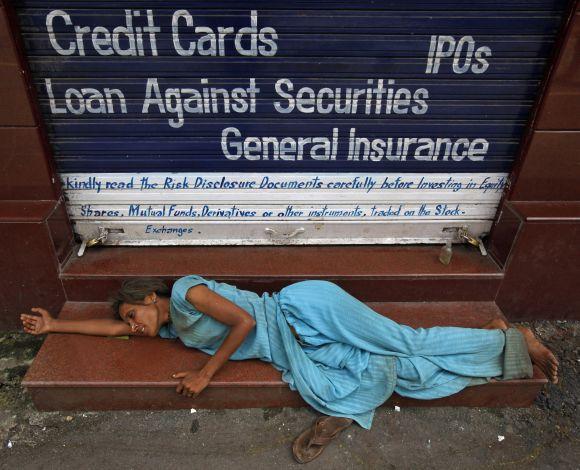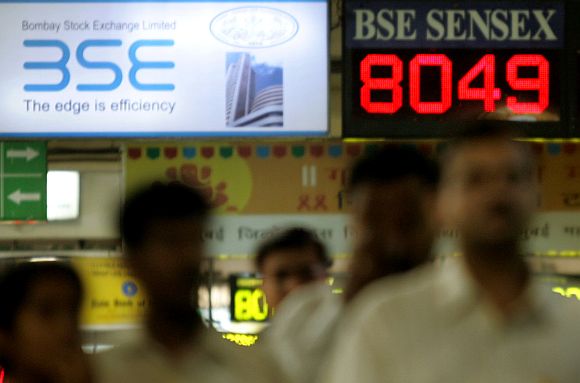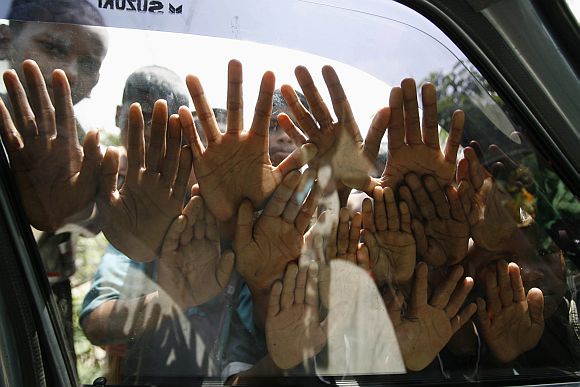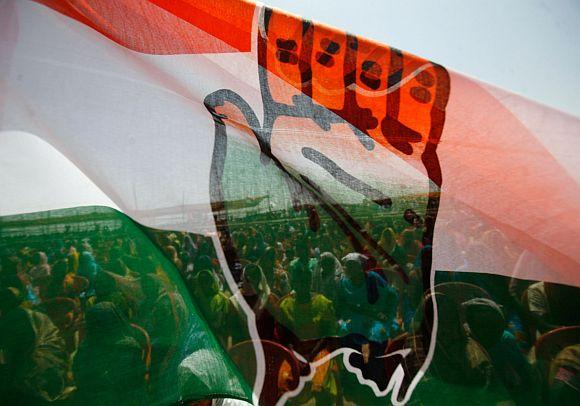
World over the condition of the poor continues to worsen. The new year will be no different. In India, scam and scandal ridden regime of the Congress-led UPA coalition has been exemplary in its cruelty towards the poor and the common man, writes Gopal Krishna.
The Parliamentary Committee on Subordinate Legislation in its 84-page report dated December 16, reveals that the United Progressive Alliance government has lost the confidence of the Parliament. It has shown that it is repeatedly disregarding parliamentary recommendations with impunity.
Two contradictory things which happened in the Lok Sabha on December 14, reveal its character. The Companies Bill, 2011 was introduced by Corporate Affairs Minister M Veerappa Moily in the afternoon that makes provision for up to 7.5 per cent profit of companies as corporate funding of political parties and NGOs. Within hours of the introduction of this bill, Manish Tewari, national spokesperson of the ruling party, stood up to speak about government's seriousness in dealing about black money.
He stated, "I feel ashamed to state that black money which is linked to our advertisement policy is related to electoral finance that needs to be rectified".
This illustrates the double speak, insincerity and inconsistency of the ruling party. It is the Companies Bill which is needed to be rectified to deal with black money and corporate funding for electoral campaigns, but this has not happened.
Please ...

The root of rampant corporate crimes committed with impunity, environmental destruction, poisoning of food chain and human rights violations by security forces has been traced to corporate funding of political parties. In the aftermath of industrial disasters, frauds and war crimes by companies world over, this bill merits rigorous scrutiny by all sections of legislatures and society.
The 397-page bill gives greater role to shareholders promoting shareholder democracy of sort instead of poor common man's democracy. It seems to be an engineered act of legislative corruption that merits more consideration than Lokpal Bill before it is passed by the Parliament.
While the hollowness of concept of Corporate Social Responsibility is well known, the same is being introduced in the Companies Bill.
Clause 135 of the bill that deal with CSR reads, "Every company having net worth of Rs 500 crore or more, or turnover of Rs 1,000 crore or more or a net profit of Rs 5 five crore or more during any financial year shall formulate a Corporate Social Responsibility Policy which shall indicate the activities to be undertaken by the company as specified in Schedule VII the company spends, in every financial year, at least two per cent of the average net profits of the company made during the three immediately preceding financial years, in pursuance of its Corporate Social Responsibility Policy.

The activities, included in the CSR policy, that have been mentioned above are functions of the state towards its citizens. This is a case of outsourcing functions of the government to companies.
It may have been better if instead of letting companies do CSR activities if the same 2 per cent of their annual profit is collected as tax to create a fund for undertaking state funding of elections?
A regime that is elected based on state funding of elections can undertake the above welfare activities and act as a genuine parens patriae (guardian of the nation). Citizens rightfully deserve it. The proposal of such CSR activities as acts of charity is an assault on provisions of the Constitution that provides for entitlements for life and environment as a fundamental right.

In the recently concluded convention of Indian Youth Congress on November 29, Congress President Sonia Gandhi reiterated the need for state financing of elections as a measure against corruption in the electoral process.
Earlier, she had demanded it at the Congress plenary in December 2010. Salman Khurshid, Union minister for law and justice, informed the Lok Sabha on November 28 that 'Group of Ministers constituted by the central government is considering measures that can be taken by the government to tackle corruption which inter alia include the introduction of state funding of elections. The Group of Ministers has discussed certain formulations those could be adopted to address this issue but no final decision has yet been taken' in a written reply to a question.
The Companies Bill, 2011 shows that what Sonia Gandhi told the convention of Indian Youth Congress has not been incorporated in the bill.
The Companies Bill provides for excessive rule making powers to the executive for subordinate legislation. This is not advisable given the poor state of our national governance.

In such a backdrop, why does Union law ministry pretend forgetfulness while approving the Companies Bill that provides for corporate funding of political parties about Group of Ministers decision asking it "to formulate concrete proposals on Constitutional and statutory amendments which are required for introducing reforms relating to state funding of elections"?
In practice this legislation legitimises corporate funding of political parties. It is explicable as to how former finance minister Yashwant Sinha forgot that he was a member of the GoM, headed by then Union Home Minister L K Advani, to consider recommendations of the Indrajit Gupta Committee on state funding of elections during the Bhartiya Janata Party-led National Democratic Alliance government.
The GoM was decided on August 17, 2001 by the Union Cabinet, presided over by the then Prime Minister Atal Bihari Vajpayee. The Committee on State Funding of Election was headed by the former Union home minister and veteran Communist Party of India leader Indrajit Gupta, and had submitted its report to the government on January 14, 1999.
The Indrajit Gupta panel had favoured state funding of elections, saying it was justified constitutionally and legally. It had recommended state funding in kind and not in cash.
In such a context, the recommendation for continued corporate funding of Parliamentary Standing Committee headed by BJP is quite bizarre and inexplicable.
Is it not the case that both ruling party and the BJP-led opposition parties preaching one thing and practicing just the contrary? Is it any wonder that Dow Chemicals Company cites the opinion of two senior office bearers of BJP and Congress in their "Q and A with respect of the government of India's request for a curative petition"? in the matter of Bhopal's industrial disaster?.
Dow says, "According to the formal legal opinions of two respected Indian jurists, senior counsel Abhishek Manu Singhvi and Arun Jaitley, Dow cannot be found liable under the laws of India. Corporate funding manifests itself in myriad disguises.

The provision of corporate funding of political parties in the Companies Bill must be looked at in the backdrop of the decision of Supreme Court of USA on January 21, 2010 in the Citizens United case, which was denounced by US President Barack Obama for the sake of record.
The US court considered whether there could be a ban on corporations using their general treasury funds for elections-related expenditure. A majority (5-4) of the court ruled that such a ban was violative of the right to free speech.
Essentially, the US court struck down certain campaign-finance limits as a violation. The impact of this ruling is that corporate entities in the USA are free to use their general treasury funds to incur election-related expenditure, in a departure from past precedents.
It also raised a question that do corporations have free-speech rights, just as individuals do? If this is the path of corporations very soon, indeed 'We The People' will be excluded from even representative government because of Corporate Personhood. It was said in the US papers that it would turn the political class into prostitutes.
In that case the Companies Bill is all set to turn most political parties into brothels wherein made-to-order legislations will have a field day if it is not the case already. Will it be surprising if very soon there will be approval for foreign direct investment to facilitate setting up of legislation manufacturing factories?
With the passage of this bill whatever say poor common man had over democratic decision making will be further eroded. The startling disclosure of the Parliamentary Committee on Subordinate Legislation headed by P Karunakaran has indicted government of India for its consistent callous and unpardonable disregard towards the Parliament's intent in the passage of legislations.
The Companies Bill also provides unprecedented power of subordinate legislation through rule making. This will worsen the situation of the poor common man amidst ongoing farmer suicides and alarming decrease in agricultural land.